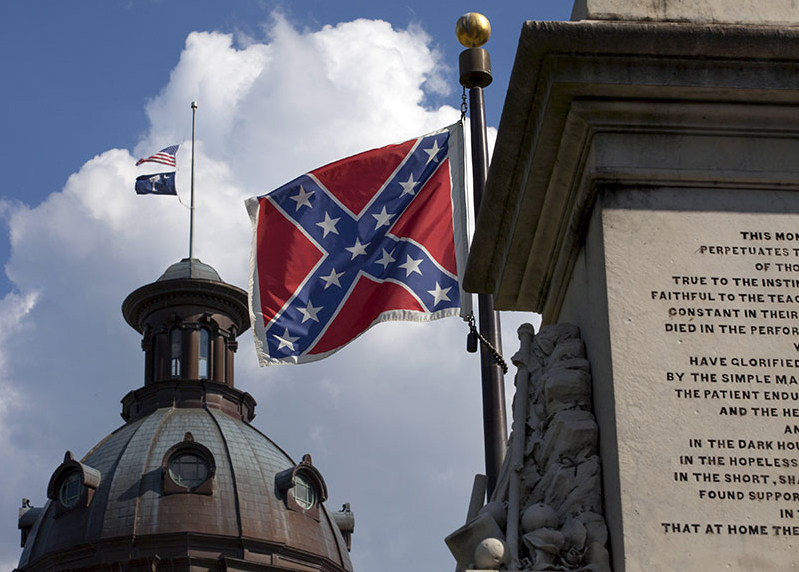
The controversial Confederate battle flag still flies near the South Carolina state house. However, its days may be numbered after the state Senate voted to take it down on Monday; a measure has to also pass in the state House of Representatives by two-thirds majority to officially remove the flag for good.
According to a combined report from Tim Smith of the Greenville News and John Bacon of USA Today, the South Carolina Senate voted 37-3 on Monday in favor of taking down the Confederate battle flag. It has to pass by a two-thirds majority again as per Senate rules; that vote is scheduled to take place this week.
"The Senate proposal, which would remove the flag from a Confederate monument on the Statehouse lawn, would go to the House for consideration," Smith and Bacon wrote. "The bill requires a two-thirds majority in both the House and Senate to be sent to Gov. Nikki Haley, who strongly supports it."
USA Today reported that only three Republicans voted against the measure. The author of the bill, Democratic state Sen. Vincent Sheheen, contended that "quiet bigotry" still exists in the state.
"It's about how to heal wounds that stretch back many years," Sheheen said of removing the flag. "We've been pulling the Band-Aid off really slowly, and it hasn't been good for us."
According to USA Today, the debate on the flag's fate began three weeks after a mass shooting at a historically black church in the South Carolina city of Charleston. Photos have emerged of the alleged shooter posing with a Confederate flag.
"It isn't a part of our future. It's part of our past," Republican state Sen. Larry Martin said.
Jenny Jarvie of the Los Angeles Times reported that the South Carolina governor issued a glowing statement on the vote.
"The South Carolina Senate today rose to this historic occasion, with a large majority of members from both parties coming together in the spirit of unity and healing that is binding our state back together and moving us forward in the right direction," Haley said.
Martin, who previously supported flying the Confederate flag on public grounds, elaborated his new position on taking it down to the Los Angeles Times.
"Folks have a right to put up whatever banner on their house," Martin said. "But on this Statehouse, on these grounds, it is different. It needs to be just that -- a part of our history."
However, Republican state Sen. Lee Bright thought that removing the controversial flag would have little effect. He argued to the Los Angeles Times that slavery also happened under the American flag.
"Removing this flag from out front is not going to do anything to change this nation," Bright said of the Confederate battle flag. "The only thing it is going to do is disrespect those 21,000 men who fought."
Democratic state Sen. Darrell Jackson, who is black, highlighted to the Los Angeles Times that about 57 percent of South Carolina's population in 1860 was composed of enslaved African Americans. In addition, his ancestor, Ishmael Jackson, fought with Sherman's army on the Union side.
"As far as they were concerned, they won the war, because they were set free as a result of this war," Jackson said of the state's black residents. "When I see a Confederate soldier, I don't get goose bumps and feel warm and fuzzy. You can't force all of us to have the passion some of you have about certain things."
According to the Los Angeles Times, many scholars indicated that the Confederate flag reemerged in Southern states during the 1960s as a symbol of defiance, which happened around the same time as the civil rights movement.







